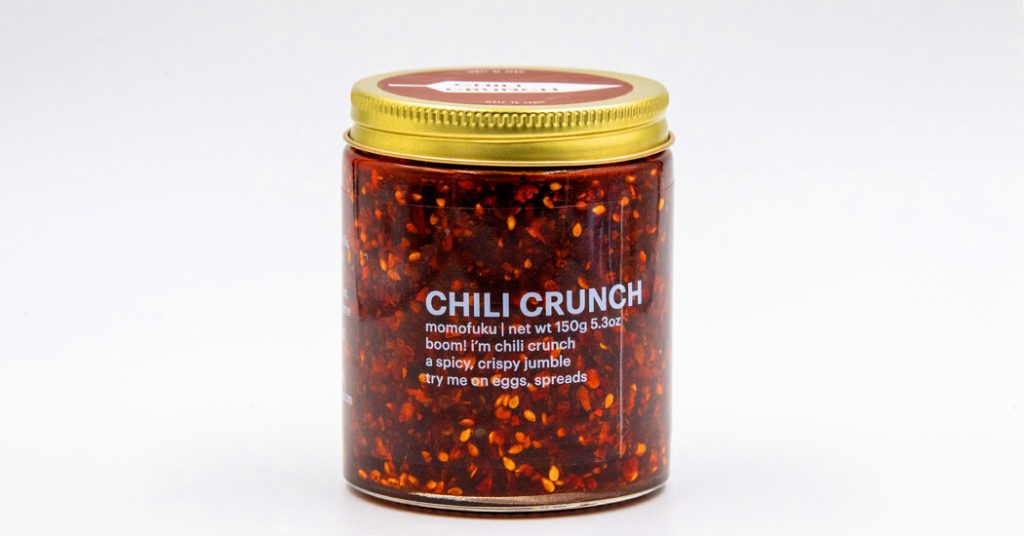The popularity of chile crisp in the United States has grown significantly in recent years, with many different variations of the condiment now available in kitchens across the country. These condiments, which may be called chile oil, chile crisp, or chile crunch, are made with a base of spicy chilies and oil, but may also contain ingredients like star anise, dried shrimp, fried shallots, sesame seeds, garlic, peanuts, or Sichuan peppercorns. Each version is unique and reflects different regional Chinese or diasporic traditions, family recipes, or personal tastes.
A recent report from The Guardian revealed that Momofuku, the culinary company founded by David Chang, owns the trademark for the term “chile crunch” and is seeking to protect it, as well as the similar term “chili crunch.” The company has been sending cease-and-desist letters to other food companies that use these terms in their marketing. However, many people, including those in the food industry, argue that it is impossible to own a basic condiment like chile crunch, as it is a common term used to describe a type of spicy condiment.
The condiment aisle has seen similar battles over branding in the past, with the example of sriracha being a notable one. Though Huy Fong Foods popularized the squeezable chile sauce in the US, the word “sriracha” was not trademarked, allowing it to become a widely-used term across different food products and cuisines. While Momofuku claims that its chile crunch is distinctive and well-known, others argue that the term is descriptive and generic, with many regional styles and variations existing in Chinese cuisine.
Chile crisp and chile crunch have become the American terms for a wide range of spicy condiments, with Lao Gan Ma being one of the few commercial versions available in the US a decade ago. The growth of this category has led to a competitive market with many new brands and variations emerging in recent years. The concept of ownership seems contradictory to the nature of these condiments, which invite experimentation and adaptation in kitchens.
Several businesses that received cease-and-desist letters from Momofuku have complied, but not Homiah. The owner, Michelle Tew, who was unsure how to market her family’s Malay chile sauce in the US, chose to call it “sambal chile crunch” to appeal to American consumers. She believes standing her ground against Momofuku is important for her business and for protecting the cultural diversity of condiments in the market. Despite the legal battles over trademarks, the popularity and versatility of chile crisp continue to attract consumers and inspire creativity in kitchens.


